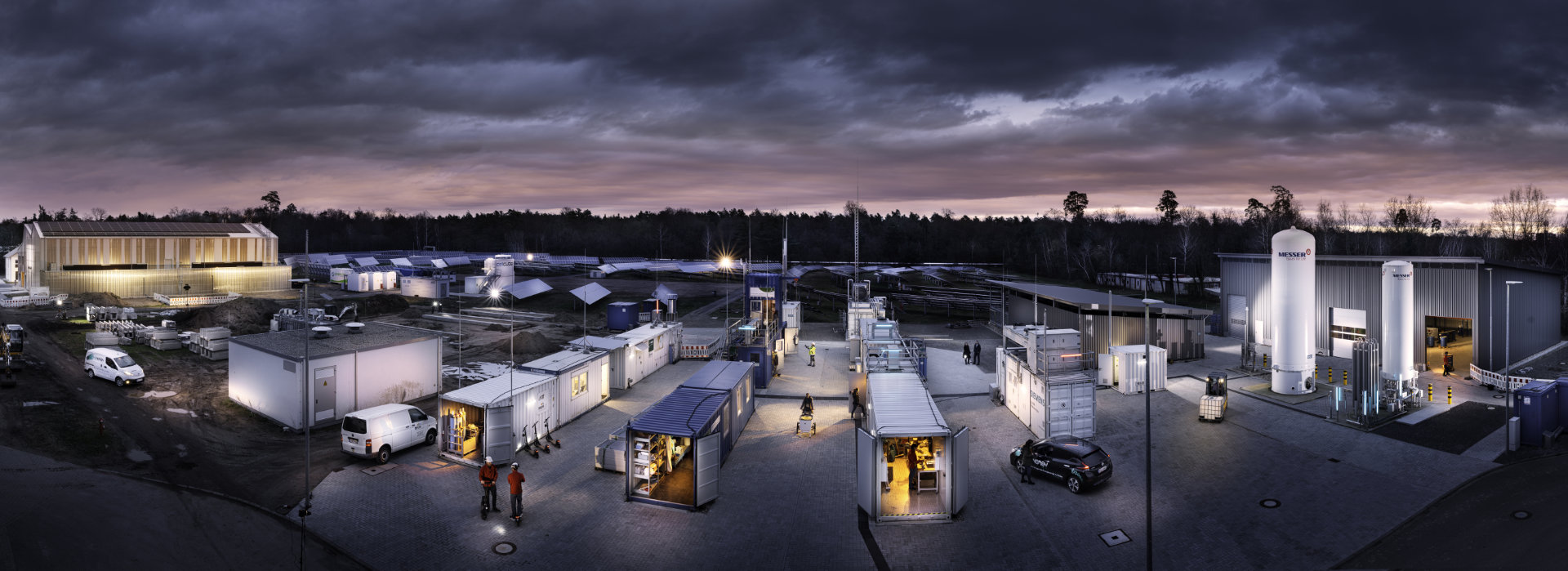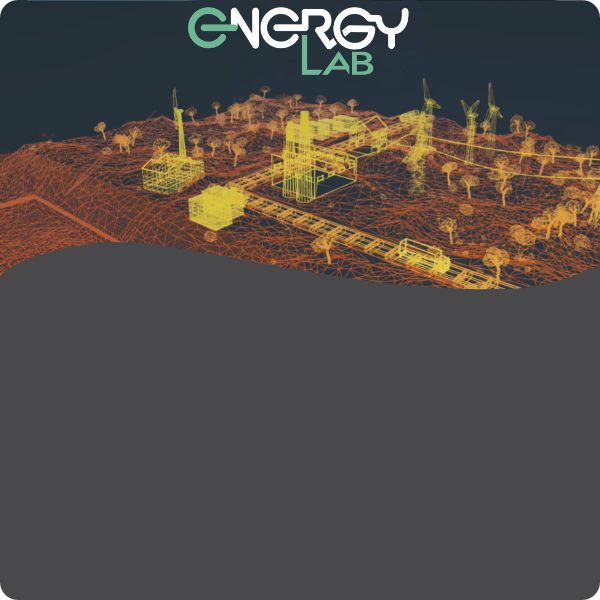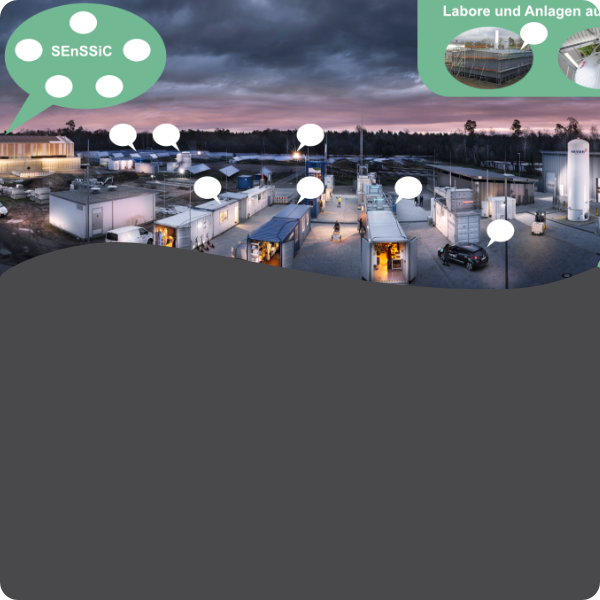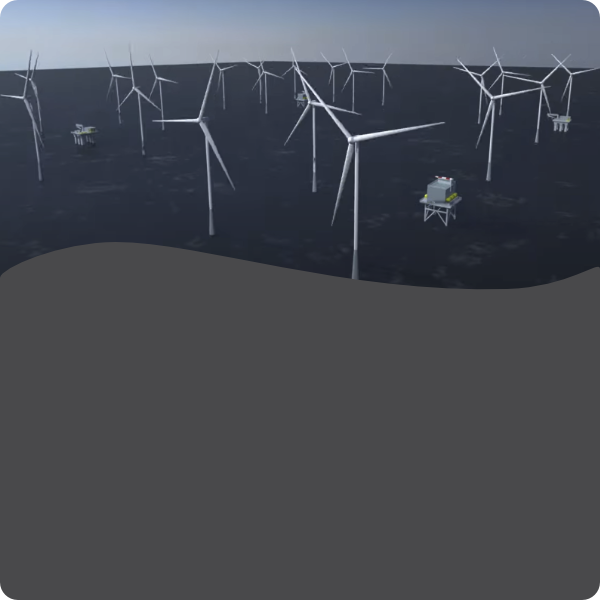Welcome to the Energy Lab
The energy transition is accompanied by many questions: How can energy be generated in an environmentally friendly way and stored with low losses?
What happens when the sun doesn't shine and the wind doesn't blow? And what if more electricity is suddenly needed?
To answer these questions, the Energy Lab is researching the intelligent linking of various energy generation, storage and supply options.
Research for the energy transition
The aim is to achieve climate neutrality by 2045 and to reduce greenhouse gas emissions by at least 65% by 2030 compared to 1990 levels. However, wind or solar energy cannot be generated consistently everywhere. Energy is often needed away from where it is generated and peak loads are to be expected at certain times. This dilemma must therefore be solved, because affordable and environmentally friendly energy should no longer remain a utopian dream.
As Europe's largest research infrastructure for renewable energy, the Energy Lab is taking on this major task. Here, the intelligent networking of environmentally friendly energy generators and storage methods is being investigated. In addition, energy systems of the future are simulated and tested on the basis of real consumer data. A system network links electrical, thermal and chemical energy flows as well as new information and communication technologies. The aim of the research work is to improve the transportation, distribution, storage and use of electricity and thus create the basis for the energy transition.
The Energy Lab is a project of the Karlsruhe Institute of Technology (KIT) in cooperation with the Helmholtz Centers German Aerospace Center (DLR) and Forschungszentrum Jülich (FZJ).
The Federal Ministries of Federal Ministry of Research, Technology and Space (BMFTR) and for Economic Affairs and Energy as well as the Baden-Württemberg Ministry of Science, Research and the Arts (MWK) are funding the Energy Lab.
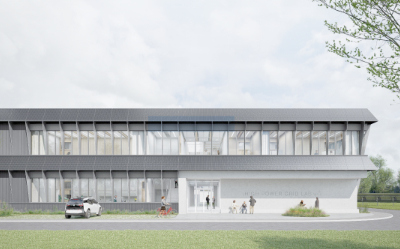
For the construction of the new High Power Grid Lab (HPGL) on the KIT Campus North, ATELIER . SCHMELZER . WEBER Architekten PartGmbB from Dresden prevailed in a two‑stage competition. The firm received the contract for presenting the most convincing architectural and conceptual design. Starting in 2027, a research infrastructure in the multi‑megawatt range will be built that, upon its commissioning in 2030, will investigate novel power‑electronic grid components under realistic grid conditions.
Website Atelier . Schmelzer . Weber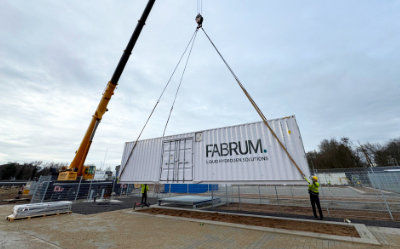
At KIT, the core component of a new facility has been installed that will liquefy more than 50 kg of hydrogen per day. As the largest non‑commercial liquefier in Germany, it supports the Hydrogen Integration Platform (HIP) and enables tests such as combining liquid hydrogen with superconducting technologies. The plant, manufactured by Fabrum, will supply Liquid Hydrogen for research at Campus North and for external projects. It arrived in Karlsruhe by ship from New Zealand.
Website HIP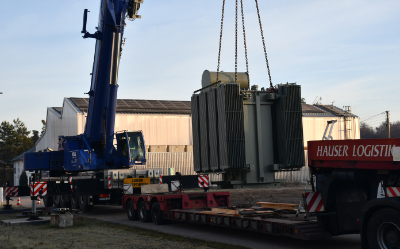
On December 18–19, J. Schneider delivered three single-phase 20 kV/7 MVA PHIL transformers, a three-phase 20 kV/10 MVA feed-in transformer, and an 80 kA high-current transformer to KIT. The equipment, procured with SEKO4 funds, is currently stored and will be integrated into the medium-voltage system of the High Power Grid Lab. In the HPGL, the feed-in transformer decouples the 20 kV lab grid from KIT’s grid and optionally provides 10 kV. The PHIL transformers ensure galvanic isolation and down-scaling for test objects. The high-current transformer enables controlled high-current tests.
Website HPGL